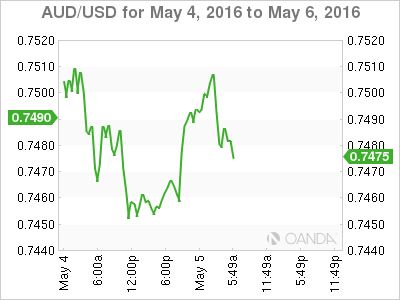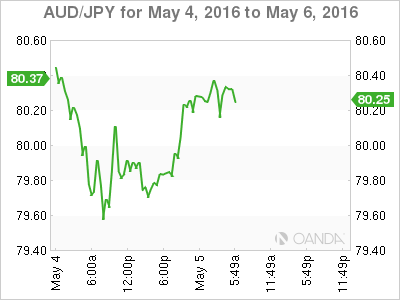Philip Lowe is set to replace Glenn Stevens as governor of Australia’s central bank, inheriting an economy grappling with the onset of disinflation that forced policy makers to cut interest rates to a record low this week.
Lowe, 54, the unanimous forecast of economists surveyed by Bloomberg in October, was appointed to a seven-year term starting Sept. 18, Treasurer Scott Morrison said Thursday ahead of an election expected to be called this weekend. Stevens leaves after helping steer the nation’s economy through the global financial crisis and the end of a mining investment boom.
Morrison took a page out of his opposition predecessor’s playbook in making the appointment in the run-up to an election, and in opting for the Reserve Bank of Australia deputy fell in with a long pattern of appointments from within the central bank. Unlike counterparts in the U.K. or U.S., Australia’s central bank has almost never seen an outsider put in charge of monetary policy.
“This is someone who understands the Australian economy and global issues very, very well,” said Richard Grace, chief currency and rates strategist at Commonwealth Bank of Australia in Sydney. “The appointment will be welcomed by the market because Lowe is a solid and known individual.”
Lowe inherits the post with diminished rate ammunition after the central bank eased policy to 1.75 percent Tuesday to cushion the end of a mining boom and try to take the heat out of a resurgent currency. The new governor may need to extend the easing cycle as traders are pricing in another rate cut in the next 12 months.
A 36-year veteran of the central bank with a PhD from Massachusetts Institute of Technology, Lowe has served as Stevens’s deputy since 2012. Stevens, the third successive RBA governor to be replaced by his No. 2, welcomed Lowe’s promotion in a statement following the announcement.
“It is a superb appointment,” he said. “There could be no one better qualified than Phil Lowe to lead the bank through the next seven years. The bank will be in the best hands.”
Lowe said in the same statement he was “deeply honored” and looked “forward to continuing the important work that the bank’s boards and staff undertake for the people of Australia.”
Bernanke, Draghi
Lowe is among fellow central bankers Ben S. Bernanke and Mario Draghi in attending MIT, where Federal Reserve Vice Chairman Stanley Fischer and former Bank of England Governor Mervyn King taught.
His main macro-economic professors were Olivier Blanchard, who was chief economist at the International Monetary Fund until September, and Rudiger Dornbusch, who pioneered the theory that currencies overshoot in either direction in the short run before correcting over time.
Bill Evans, chief economist at Westpac Banking Corp., said Lowe was the best candidate for the position.
“I’ve been dealing with the Reserve Bank for 30 years or more and I found him the most outstanding person I’ve dealt with,” Evans said. “The best way to measure Phil’s ability is the insights from his speeches — whenever he gave a speech I learnt something.”
Morrison also appointed Ian Harper as an independent member of the board of the central bank, replacing John Edwards whose term expires on July 30. The central bank’s new deputy governor role will be “considered in the second half of the year,” the Treasurer said.
Opposition Treasury spokesman Chris Bowen welcomed Lowe’s promotion: “Dr Lowe is one of the finest Australian economists of his generation,” Bowen said in a statement.
This article is for general information purposes only. It is not investment advice or a solution to buy or sell securities.
Opinions are the authors — not necessarily OANDA’s, its officers or directors. OANDA’s Terms of Use and Privacy Policy apply. Leveraged trading is high risk and not suitable for all. You could lose all of your deposited funds.
Recommended Content
Editors’ Picks
EUR/USD edges lower toward 1.0700 post-US PCE

EUR/USD stays under modest bearish pressure but manages to hold above 1.0700 in the American session on Friday. The US Dollar (USD) gathers strength against its rivals after the stronger-than-forecast PCE inflation data, not allowing the pair to gain traction.
GBP/USD retreats to 1.2500 on renewed USD strength

GBP/USD lost its traction and turned negative on the day near 1.2500. Following the stronger-than-expected PCE inflation readings from the US, the USD stays resilient and makes it difficult for the pair to gather recovery momentum.
Gold struggles to hold above $2,350 following US inflation

Gold turned south and declined toward $2,340, erasing a large portion of its daily gains, as the USD benefited from PCE inflation data. The benchmark 10-year US yield, however, stays in negative territory and helps XAU/USD limit its losses.
Bitcoin Weekly Forecast: BTC’s next breakout could propel it to $80,000 Premium

Bitcoin’s recent price consolidation could be nearing its end as technical indicators and on-chain metrics suggest a potential upward breakout. However, this move would not be straightforward and could punish impatient investors.
Week ahead – Hawkish risk as Fed and NFP on tap, Eurozone data eyed too

Fed meets on Wednesday as US inflation stays elevated. Will Friday’s jobs report bring relief or more angst for the markets? Eurozone flash GDP and CPI numbers in focus for the Euro.

